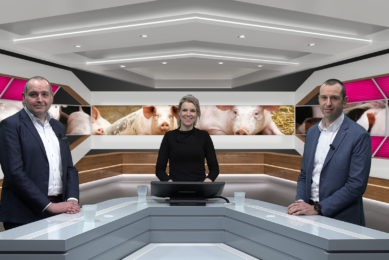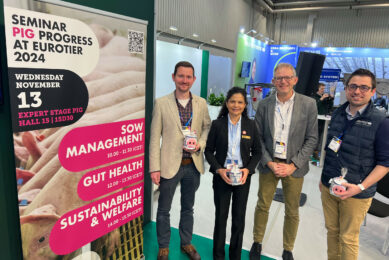On-demand: Webinar on dietary stress at weaning

Which strategies exist to overcome dietary stress at weaning? And why is it important to know when to act with regard to piglet nutrition? These questions were answered at a recent webinar of Pig Progress. The webinar is now available for viewing on-demand for free.
The webinar was recorded on November 1 in Amsterdam, the Netherlands, and featured contributions from Wageningen Bioveterinary Research, the Netherlands and animal nutrition company Hamlet Protein, Denmark.
Windows of opportunity in pig nutrition
On behalf of Wageningen Bioveterinary Research, researcher and business developer Dr Astrid de Greeff spoke of windows of opportunity to induce changes in intestinal development. She referred to a ‘window of opportunity’ stating that there is an option to act for a short time, which should be taken advantage of quickly.
She added that in pigs, there is a window of opportunity with regard to influencing the intestinal and immunological development. Interventions early in life (or even in utero) may have a long-lasting effect on gut health, she said, as they can profoundly affect the microbiota in the gut.
Nutrition and weaning stress for piglets
The next speaker was Dr Elke von Heimendahl, global segment manager at Denmark-based animal nutrition company Hamlet Protein. Following up on the presentation of Dr De Greeff, she stated that nutrition does have an influence on weaning stress.
She first focused on different aspects of piglet stress around weaning – consisting of social stress, environmental stress and dietary stress. In more detail, she pointed out that, while it is hard to do much on social and environmental stress, it is definitely possible to reduce dietary stress by delivering high quality protein sources low in anti-nutritional factors, e.g. beta-conglycinin. This substance plays and important role in creating inflammation and oxidative stress in piglets.
Diets containing only a minimum of antigens, she concluded, will result in lower oxidative stress and higher performance of the animals.











